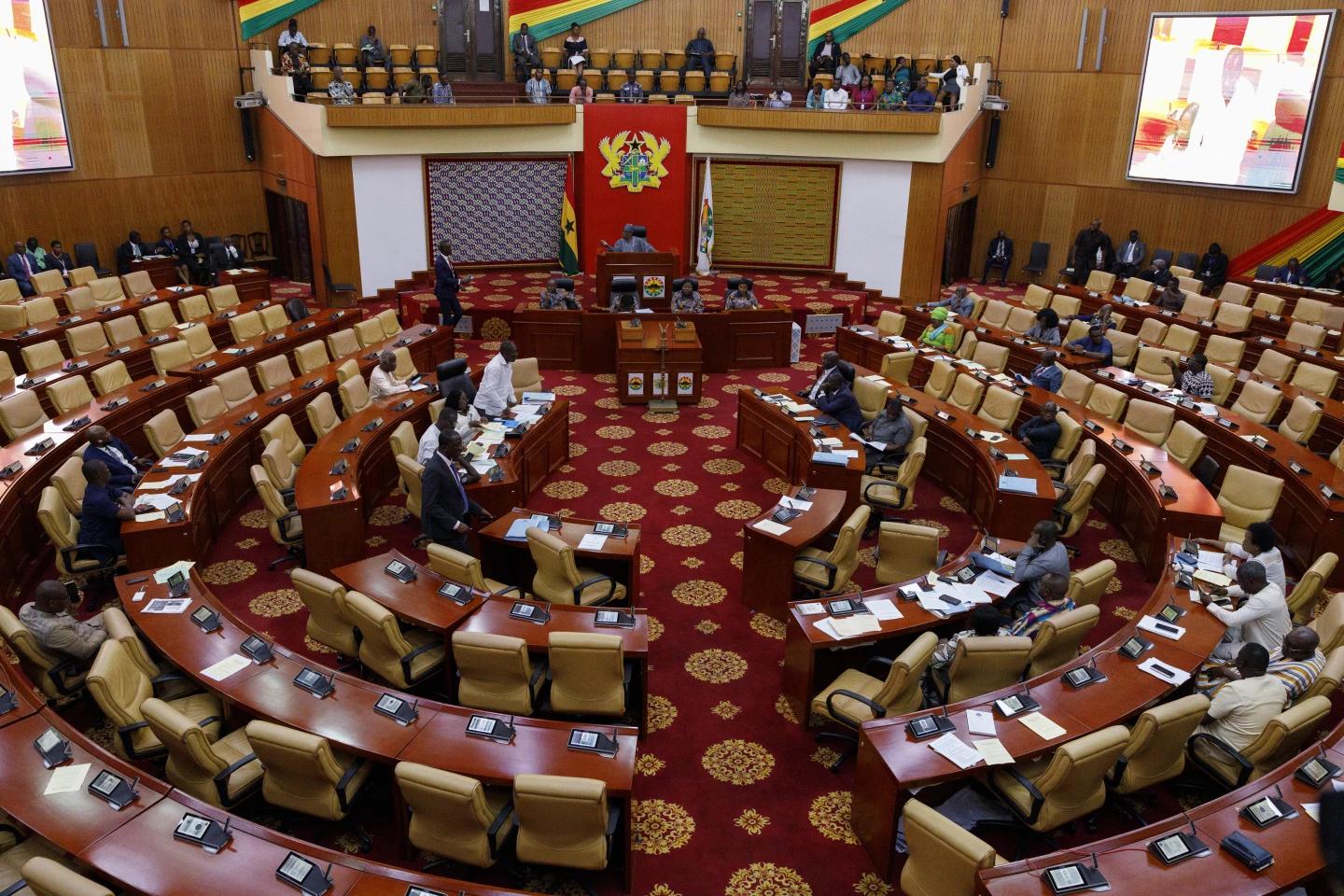YAOUNDÉ, Cameroon – Catholic bishops in Ghana have questioned the wisdom of imposing harsher punishment for LGBTQ+ people following the passage of the “Human Sexual Rights and Family Value Bill” that imposes prison terms on people identifying as homosexuals or people and associations promoting the practice.
The African country’s parliament on Feb. 28 passed the draconian bill that imposes prison terms of six months to three years for people who identify as LGBTQ+, and punishes promoters and sponsors of such acts to prison terms ranging from three to five years.
In an interview with Accra-based City FM, the president of Ghana’s Bishops’ Conference, Bishop Matthew Kwasi Gyamfi of Sunyani said imprisoning gay people will not end homosexuality but could actually increase the practice given the overcrowding in prisons.
“You see, if you round up same-sex people and you know our prisons, they are going to end up in the same room and what is going to prevent them from going through these same activities in the prison,” the bishop said.
“And you are not going to put them there forever because they are going to be there for three months or six months, and then they practice this and come out as experts in it than when you sent them there,” he added.
Gyamfi called for “more of the corrective and reformative measures” to deal with the issue.
He said this does not in any way imply that the bishops think homosexuality should be accepted as a form of expressive of love.
In December 2023, the bishops reiterated their endorsement of the former anti-LGBTIQ+ Bill through a statement aimed at clarifying their stance on homosexuality.
Titled “The Catholic Church and the State on Homosexuality,” the Dec. 11 declaration emphasized that the Church distinguishes between a person’s homosexual identity and the specific actions they may engage in as a homosexual individual. While the Church does not condemn individuals for their sexual orientation, the statement says it unequivocally opposes homosexual acts, considering them ‘intrinsically disordered’ and unacceptable.
The bishops said the Bible is foundational to their opposition to homosexuality, noting that it is “incompatible with the creation stories about Man and Woman in Genesis.”
While insisting that homosexuals, created in the image and likeness of God are also entitled to all the fundamental human rights, the Ghana bishops argue that “the rights of homosexuals as persons do not include the right of a man to marry a man, or of a woman to marry a woman,” because this is “morally wrong and goes against God’s purpose for marriage.”
A coalition of human rights organizations, led by Professor Audrey Gadzekpo, Chair of the Center for Democratic Development (CDD-Ghana), has voiced opposition to the new bill and warned of a potential legal challenge should President Nana Akufo-Addo approve the legislation.
Ghana’s Finance Ministry has urged the country’s president to refrain from endorsing the bill, but for a different reason.
In a March 4 press release, the Ministry warned of significant financial repercussions should the bill be enacted into law. It said Ghana could face a significant reduction in World Bank funding, with an estimated potential loss of $3.8 billion over the next five to six years.
“The President may have to defer assenting to the Bill until the court rules on the legal issues tabled by key national stakeholders, “the statement said.
The United States, Great Britain, and human rights groups have all voiced opposition to the bill, with the U.S. warning that its passage could result a chilling effect on foreign investment to Ghana.
The country, which is facing a deep economic crisis and had to be bailed out by the World Bank last year, is also part of the U.S. trade agreement with Africa – the African Growth and Opportunity Act (AGOA). The same fate that befell Uganda when it passed rather harsh laws against homosexuality could also befall Ghana. Uganda was forced out of the AGOA by the United States.
Human Rights Watch has condemned the Bill and urged Akufo-Addo to “unequivocally reject the bill and refuse to sign it.”
“The anti-LGBT rights bill is inconsistent with Ghana’s long-standing tradition of peace, tolerance, and hospitality and flies in the face of the country’s international human rights obligations,” said Larissa Kojoué, researcher at Human Rights Watch.
“Such a law would not only further erode the rule of law in Ghana, but could also lead to further gratuitous violence against LGBT people and their allies,” she said.














